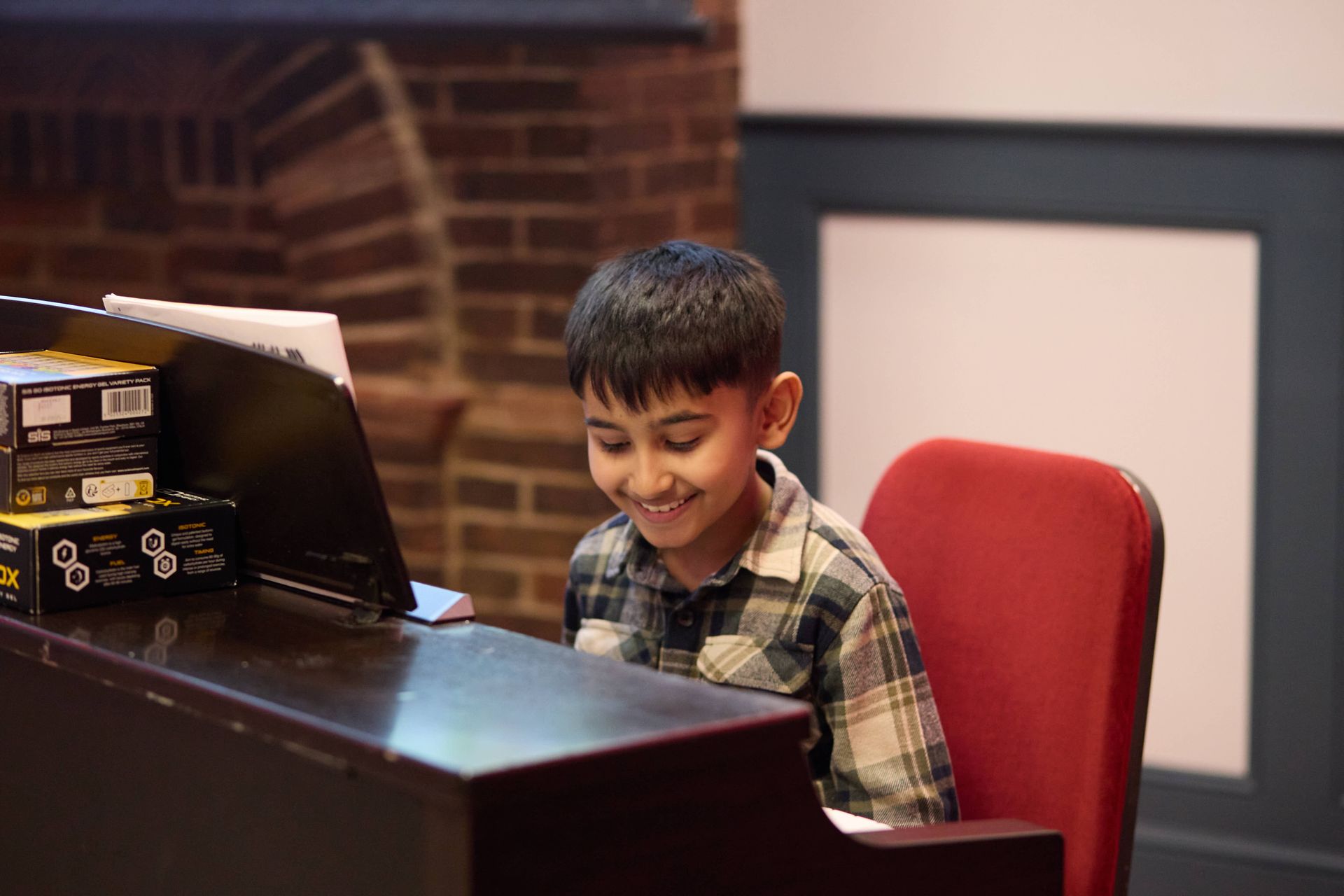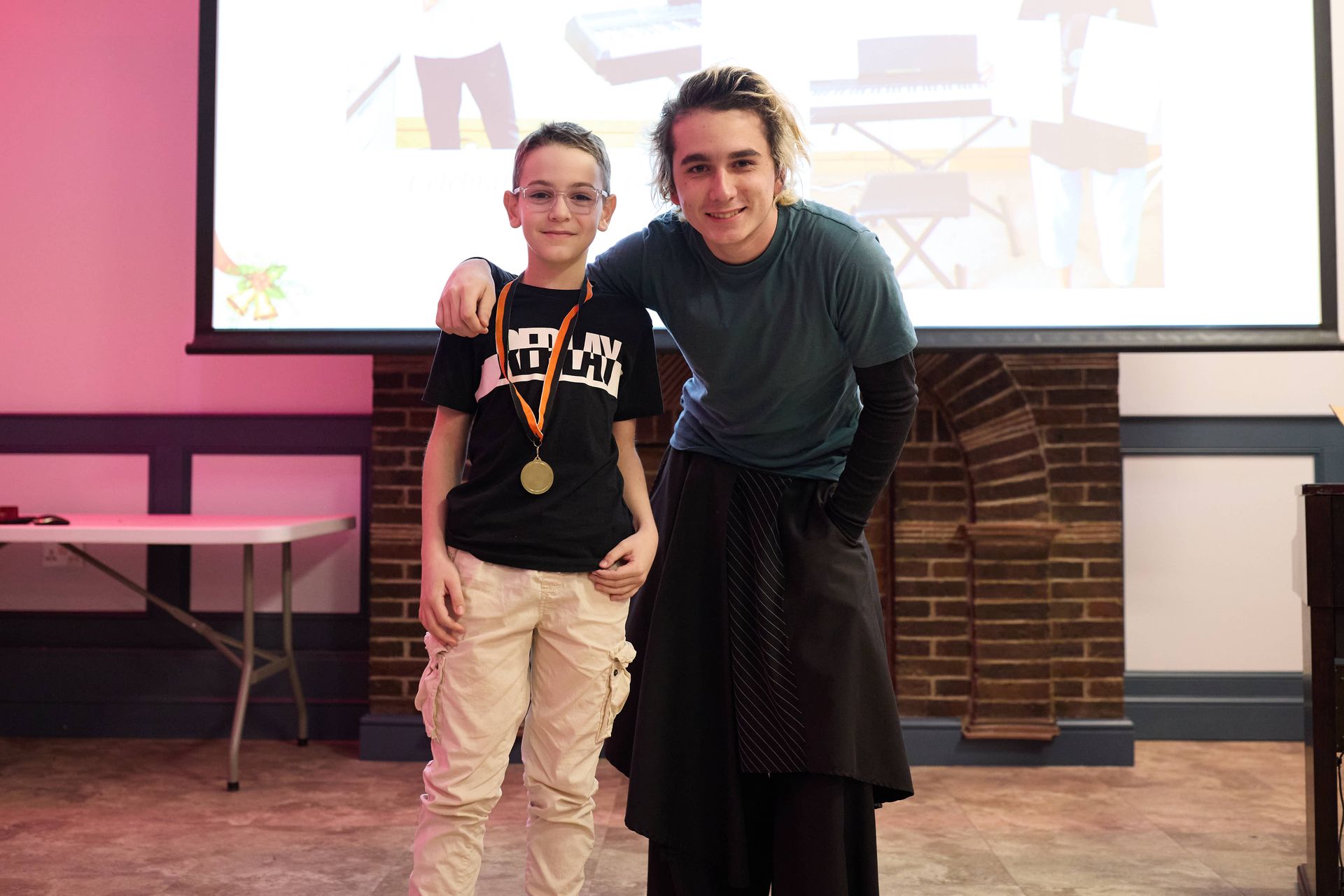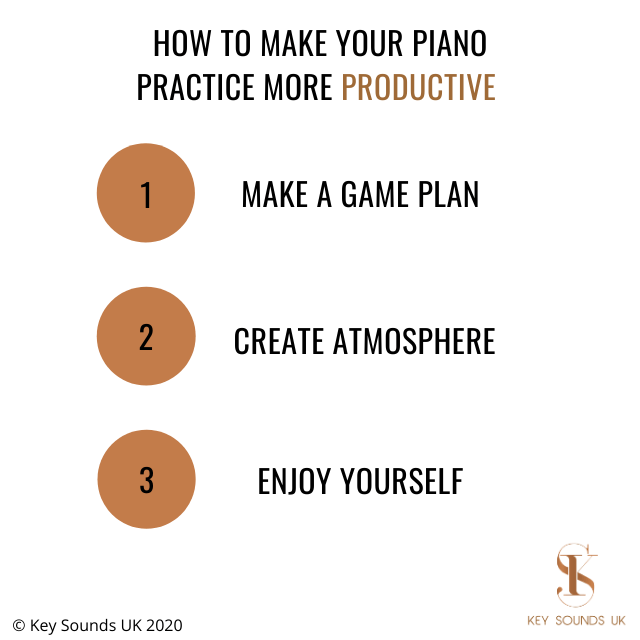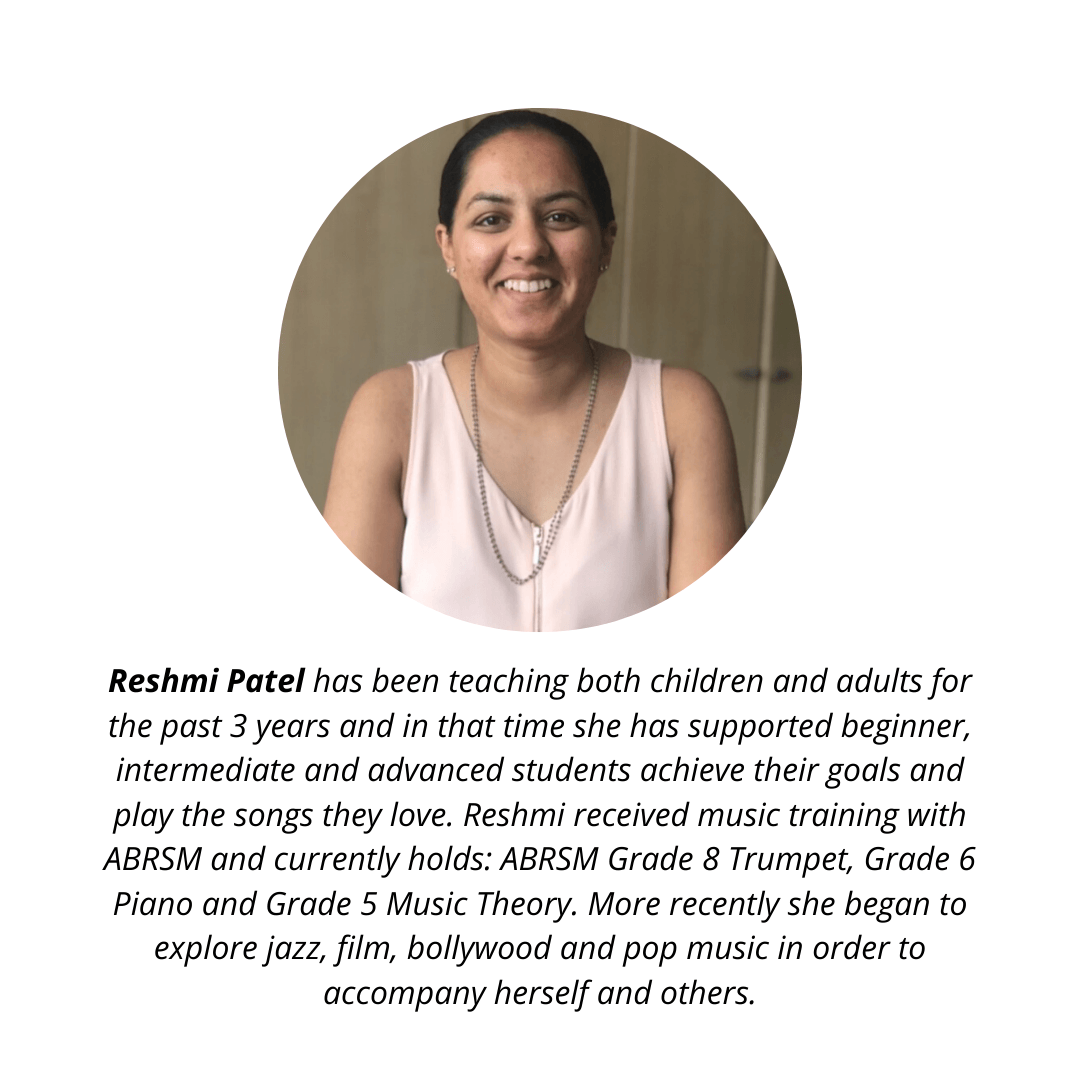Reshmi Patel • October 9, 2020
Why Are You Paying for Piano Lessons When Your Child Isn't Practising?
You've spent hundreds of pounds on a piano. You're spending time and money on lessons.
Have you ever wondered how your child can FULLY utilise their time, efforts and money into their piano journey?
Piano Lessons:
1. Set goals and objectives with your teacher.
Provide yourself with an action plan so that your practice becomes productive and you are able to look forward to your lessons.
2. Show your teacher what you have been working on in your practice.
Whether it’s your homework or something you picked up in your school music lessons, ask your teacher if you can share with them what you have been learning outside of your piano lesson.
3. Play educational music theory games or activities.
Ask your teacher if they provide games and activities to provide you with a different and potentially a more enjoyable way of learning the music theory material.
4. Ask questions when you don't understand.
No question is a silly question. Ask your teacher when you are stuck on something.
Piano Practice:
1. Make a game plan
Check your lesson notes and make yourself an actionable plan of what and when you will practice.
2. Create atmosphere
The location of your piano may be most useful in the hallway or somewhere where you will see it regularly as a cue to remind you to practice.
3. Play songs you enjoy!
If you don’t enjoy the songs you are learning speak to your teacher about ways you can explore other styles or genres of music.
To find out more, feel free to get involved in our latest project “The Habits of the Top Performing Piano Players”, fill out our survey: https://docs.google.com/forms/d/13kfjQbsNwdOeJlnPF6cp5HfOm-o45xubyo9qSJRTrAM/edit. For your chance to win a Nintendo DS Lite or a £50 Amazon Gift Voucher.

If you’ve ever had this thought, you’re not alone. Many parents tell us the same thing: “I want to support my child’s piano learning, but I don’t read music and I don’t play the piano so I’m not sure what I should be looking for.” Tip One: Notice How They Approach the Piano (Not Just What They Play) Progress doesn’t always sound obvious, especially in the early years. Instead of listening for “perfect notes,” try observing: Do they sit down more calmly and confidently than before? Do they begin playing with less hesitation? Do they seem clearer about where to place their hands? These small changes tell us a lot. They show growing familiarity, comfort, and confidence - foundations that matter far more than speed or difficulty at this stage. When practice feels easier or less emotional than it used to, that is progress. Tip Two: Capture Progress Through “Before vs After” Videos For non-musical parents, videos are one of the clearest ways to see progress over time. How to do it: Record your child playing a short piece or exercise Record the same piece again 5-6 lessons later (or when the teacher says it’s “finished”) You’re not looking for perfection. Instead, notice: Confidence: Are they more willing to start? Independence: Do they find their starting position faster? Flow: Are there fewer stops or restarts? Even small improvements matter especially in the first few years of learning. Keep these videos private. They’re not for comparison with others, they're a reminder of how far your child has come. Tip Three: Ask for One Clear “Checkpoint” to Look Out For Progress doesn’t always mean moving up a level or starting a new book. For younger learners, it often shows up as: Starting a piece without prompting Finding hand position independently Playing through without stopping Feeling confident playing for someone else A helpful question to ask the teacher is: “What’s one thing we should notice improving over the next few lessons?” This gives you clarity, keeps expectations realistic, and helps you support practice at home without pressure. A Reassuring Note for Parents Between ages 6–9, piano progress is often gradual and subtle and that’s exactly how it should be. Confidence, comfort at the keyboard, and smoother transitions are just as important as notes and rhythm. By observing small changes, celebrating milestones, and staying aligned with your child’s teacher, you’re already playing a vital role in their musical journey even if you’ve never played the piano yourself. If you have any questions please feel free to reach out!

If you’ve ever had this thought, you’re not alone. Many parents tell us the same thing: “I want to support my child’s piano learning, but I don’t read music and I don’t play the piano so I’m not sure what I should be looking for.” Tip One: Notice How They Approach the Piano (Not Just What They Play) Progress doesn’t always sound obvious, especially in the early years. Instead of listening for “perfect notes,” try observing: Do they sit down more calmly and confidently than before? Do they begin playing with less hesitation? Do they seem clearer about where to place their hands? These small changes tell us a lot. They show growing familiarity, comfort, and confidence - foundations that matter far more than speed or difficulty at this stage. When practice feels easier or less emotional than it used to, that is progress. Tip Two: Capture Progress Through “Before vs After” Videos For non-musical parents, videos are one of the clearest ways to see progress over time. How to do it: Record your child playing a short piece or exercise Record the same piece again 5-6 lessons later (or when the teacher says it’s “finished”) You’re not looking for perfection. Instead, notice: Confidence: Are they more willing to start? Independence: Do they find their starting position faster? Flow: Are there fewer stops or restarts? Even small improvements matter especially in the first few years of learning. Keep these videos private. They’re not for comparison with others, they're a reminder of how far your child has come. Tip Three: Ask for One Clear “Checkpoint” to Look Out For Progress doesn’t always mean moving up a level or starting a new book. For younger learners, it often shows up as: Starting a piece without prompting Finding hand position independently Playing through without stopping Feeling confident playing for someone else A helpful question to ask the teacher is: “What’s one thing we should notice improving over the next few lessons?” This gives you clarity, keeps expectations realistic, and helps you support practice at home without pressure. A Reassuring Note for Parents Between ages 6–9, piano progress is often gradual and subtle and that’s exactly how it should be. Confidence, comfort at the keyboard, and smoother transitions are just as important as notes and rhythm. By observing small changes, celebrating milestones, and staying aligned with your child’s teacher, you’re already playing a vital role in their musical journey even if you’ve never played the piano yourself. If you have any questions please feel free to reach out!

“We’ve been doing lessons for a while… but how do I know if it’s actually working?” This is one of the most common and completely valid questions parents ask themselves, especially if they’re not musical. Progress in piano doesn’t always look or sound obvious in the early stages. Unlike some activities, results aren’t instant and that can feel worrying when you’re investing time, money, and emotional energy into your child’s learning. The reassuring news? Most healthy musical progress happens quietly before it becomes obvious. Here’s what to realistically expect over time and when not to worry. What Progress Often Looks Like around 3-6 Months(if they began as a beginner) At this stage, progress is mostly about settling in. You might notice: Your child feels more comfortable sitting at the piano They recognise lesson routines They’re starting to listen more carefully, even if notes aren’t perfect What’s normal here: Hesitation Needing reminders and support This isn’t slow progress, it's foundation-building. What Progress Often Looks Like at 7-12 Months This is when progress becomes clearer to most parents. You may notice: Greater independence Less hesitation when playing Improved posture and focus Pride in what they can play Not every child is ready for grades at this stage and that’s perfectly fine.Your child is learning how to learn and that skill takes time. Strong foundations now often lead to faster, more confident progress later. If you have any questions please feel free to reach out!


